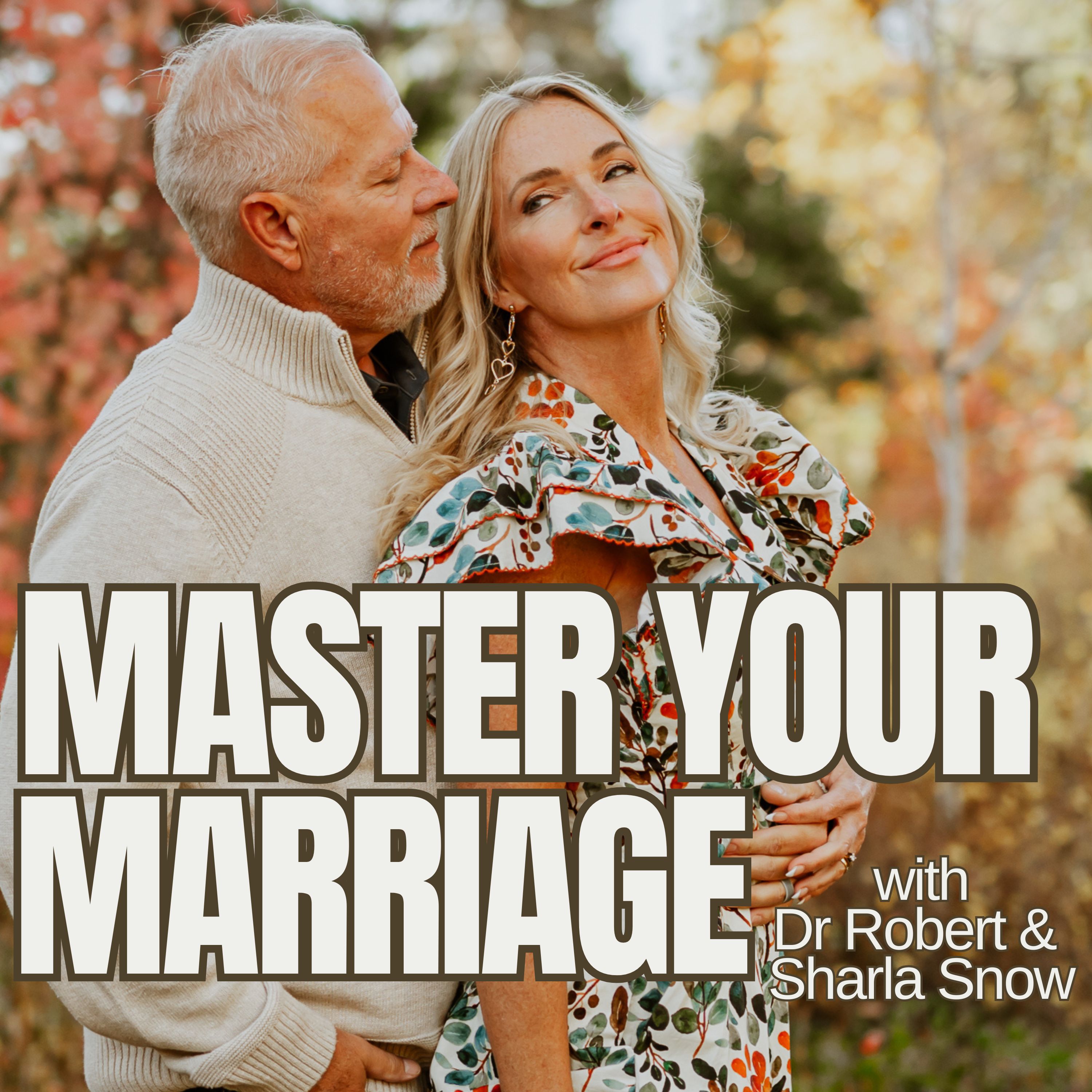How Trauma Hijacks Your Marriage (And How to Take It Back) Part 2
In this powerful follow-up to our discussion on big “T” trauma, we dive deeper into how all trauma—big and small—shapes the automatic behaviors that can strain your marriage. From lying to stonewalling, these “stances” stem from your adaptive child, a part of you formed in childhood. Through heartfelt stories and practical steps, we explore how to identify these patterns, heal your inner child, and choose wiser responses to reclaim your relationship. Join Robert and Sharla for an honest, hope-filled conversation about breaking free from the past.
Summary
Relationships aren’t just about communication or date nights—the real work is growing beyond your automatic reactions. In this episode, we unpack how childhood trauma creates your relational “stance,” an instinctive response like fighting, fleeing, or fixing that shows up when stress hits. We share the story of Dan, whose evasiveness nearly cost him his marriage, and Jessica, whose stonewalling left her husband feeling disconnected. Drawing on insights from therapists like Terry Real and Pia Mellody, we explain how the “adaptive child” forms and how to spot it in yourself. Most importantly, we offer a compassionate, practical path to pause, reflect, and choose responses that prioritize love over survival. If you missed Part 1, go back and listen to our discussion on big “T” trauma—it sets the stage for this episode!
Key Takeaways
- Your Stance is Your Adaptive Child: Your knee-jerk reactions in marriage—like lying, shutting down, or people-pleasing—are coping strategies from childhood trauma, big or small. They helped you survive then but can hurt your relationship now.
- Trauma Isn’t Always Big: “Little t” traumas, like being told your emotions were too much or lacking emotional guidance, wire your nervous system and show up as automatic behaviors in adulthood.
- Spot the Signs: You’re in your adaptive child when you get rigid, harsh, or lose empathy. In your wise mind, you’re curious, flexible, and compassionate—qualities that strengthen your marriage.
- Heal with Compassion: Don’t indulge or shame your inner child. Instead, have a loving conversation: forgive them, apologize for their pain, and commit to protecting your partner.
- Choose Wisely: Pause before reacting. Wait for your “second consciousness” to choose a response that puts your relationship first, like Dan’s honest “I forgot” moment.
- It’s a Daily Practice: Reclaiming your marriage means identifying your stance, pausing, and choosing love moment by moment. With practice, you can shift from “me” to “we.”
Dive Deeper
Resources Mentioned:
- Us: Getting Past You and Me to Build a More Loving Relationship by Terry Real – The book featuring Dan and Julia’s story, offering insights on relational healing.
- Pia Mellody’s work on the “adaptive child” – Explore her books like Facing Codependence for a deeper understanding of how childhood shapes adult behaviors.
Suggested Resources:
- The Body Keeps the Score by Bessel van der Kolk – A must-read for understanding how trauma affects the nervous system and relationships.
- Hold Me Tight by Dr. Sue Johnson – A practical guide to building emotional connection in your marriage.
- Journal Prompt: Reflect on your relational stance. Ask honestly, “What do I do when I’m triggered? What is my relational stance?”
- Get Coaching: Consider working with coach or therapist with experience dealing with trauma, or reach out to us for personalized coaching (see Connect with Us below).
Connect with Us
We’re here to support you in building a stronger, healthier marriage. If this episode resonated and you’d like help breaking free from old patterns, reach out!
- Email: masteryourmarriage@gmail.com – Ask about our coaching options or share your story.
- Instagram: Follow @masteryourmarriage for daily tips and inspiration.
- Reviews: Loved this episode? Leave us a 5-star review on Apple Podcasts and/or Spotify, and share it with someone who’d benefit.
- Feedback: Have topic ideas or ways we can improve? Email us at masteryourmarriage@gmail.com.
Parting Words
This week, be kind to each other and put your partner first. Healing from trauma’s impact is a moment-to-moment practice, but it’s worth it for the love you’ll build. Remember, it’s the small things, done consistently, that create the biggest impact. Until next time, keep choosing love.

